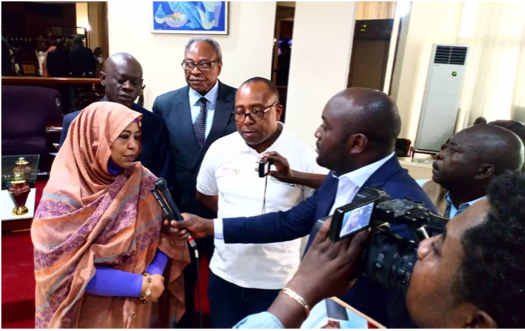Africa CDC Strengthens Support to Ebola Response in the Democratic Republic of Congo
Africa CDC Strengthens Support to Ebola Response in the Democratic Republic of Congo



The African Union Commission, through the Africa Centres for Disease Control and Prevention (Africa CDC), is reinforcing its support to the Ebola response in the Democratic Republic of Congo and other parts of Africa, following the declaration of the outbreak as a public health emergency of international concern (PHEIC).
Immediately after the declaration by WHO on 17 July, Africa CDC briefed the leadership of the AU Commission and the Peace and Security Council and developed an expanded response plan which includes participation of many departments and units of the African Union, including the Peace and Security Department. This expanded plan will not be limited to the DRC but also includes countries that share borders with the DRC and other countries within the region.
The Chairperson of the AUC Moussa Faki Mahamat receives weekly briefings on the situation in the DRC and progress in the implementation of the new response plan and to garner support from Africans for an improved response to this deadly disease, the Chairperson will convene a multi-sectoral partners’ forum in the first week of September 2019. The “Partners’ Conference” will mirror a similar session held during the previous Ebola outbreak in three countries in West Africa, and will also include the private sector in Africa to gain the necessary support required to end the current Ebola outbreak and prevent it from spreading to other countries.
Africa CDC has already deployed teams of experts to South Sudan and Uganda to assess their level of preparedness and identify gaps and areas requiring support. Africa CDC will also post additional experts to these and other countries in the region to support preparedness and surveillance, and response in case there is an outbreak in those countries.

From 23 to 27 July 2019, Commissioner for Social Affairs Amira Elfadil visited the DRC and held meetings with key stakeholders to discuss gaps in the current response and identify additional support that the African Union can provide.
In addition, the African Union is supporting the deployment of more members of the African Voluntary Health Corps (AVoHC) to the DRC and neighbouring countries. It is already calling up members who are available for immediate deployment. AVoHC is a team of epidemiologists, anthropologists, and communication, laboratory and logistics experts, from different parts of Africa who are on standby for deployment when there is a disease outbreak or public health emergency.
The African Union will also support the procurement and provision of additional equipment and supplies to strengthen surveillance, clinical diagnosis and treatment.
Considering the importance of a coordinated and integrated response, Africa CDC will be working closely with the Government of the DRC and partners, including the United Nations entities, as it has done in the past.
Outbreak situation as of 27 July
- Total number of reported cases – 2659
- Number of confirmed cases – 2565
- Number of probable cases – 94
- Number of people recovered – 767
- Total number of deaths – 1782
- Overall case fatality ratio – 67%

Africa CDC support to date
- 41 experts deployed to support response
- Over 800 local health care workers and community volunteers trained
- Supplied six GeneXpert machines with over 3000 cartridges to support clinical diagnosis
- Supplied personal protective equipment in 13 health centers and hospitals
- Trained 350 people in port of entry screening in partnership with the DRC Ministry of Public Health
- Mobilized contacts for vaccination



